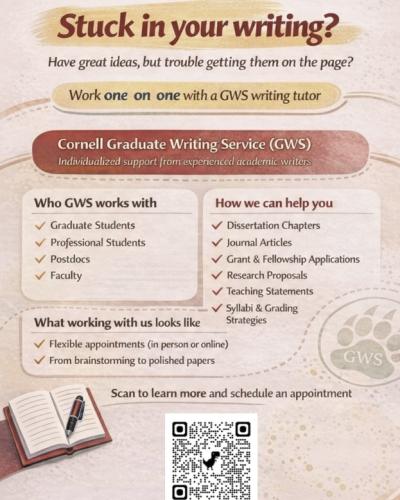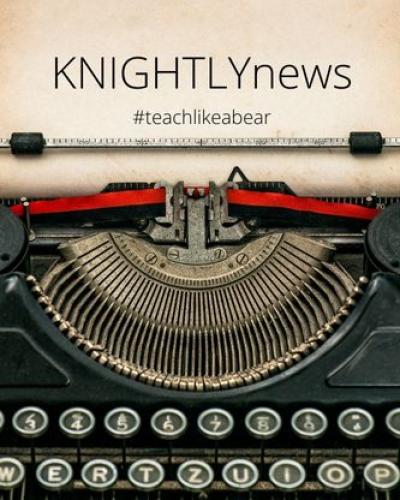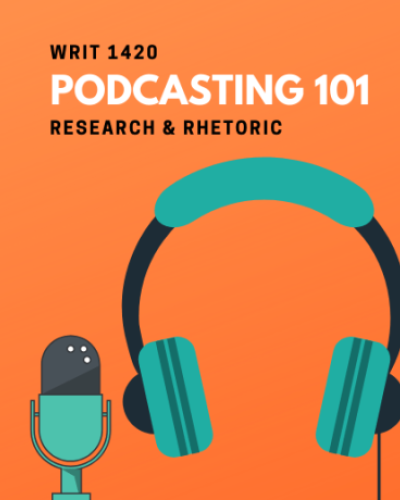We're spotlighting the exciting research and writing, in the form of podcasts, from Dr. Kate Navickas's FWS, WRIT 1420. We're currently looking for more teachers who might be interested in sharing inspiring and engaging FWS assignments and student work; if you're interested, see our list of requested information here.
WRIT 1420 Course Description
Do you love Radiolab, This American Life, Serial, Stuff You Should Know, or even The Joe Rogan Experience? Or, are you curious about all of the hype around podcasts? Whether you’re an experienced podcast-listener or new to the phenomena, in this course, you will both study some popular podcasts and produce short and long pieces. We will analyze podcast episodes and seasons for their narrative style, use of evidence, framing devices, and other rhetorical moves as a way to understand different podcast genres as compositions. We will also learn to use Audacity (a free software), conduct interviews, collect usable secondary research, write podcast outlines, and incorporate creative commons sounds and music to create short sound bites and an extended longer podcast (12-15 minutes). This course treats podcasts as researched multimodal compositions for public audiences.
Podcast Assignment Narrative
The podcasts shared below are students' final course projects. Since WRIT 1420 is a research-intensive FWS, these podcasts took about 8-weeks to complete; in other words, the research, thinking, and writing that went into them was the bulk of the work of the course. Students were encouraged to pick any topic of their choosing, so long as they could research it and make it valuable for a public audience. Even though podcasts may be seen by some as not actual writing, there was a ton of research and writing that went into making these. Students were introduced to library research (scholarly vs. non-scholarly sources) and were required to complete the following for this project:
- Initial Secondary Research (4-5 sources)
- Podcast Proposal (3-5 pages)
- Recorded Interviews (2-3)
- Additional Secondary Research (4-5 sources)
- Outline of Podcast
- Final Podcast (Revised Twice)
- Reflection on Podcast Experience & Podcast Peer Review Collaboration with Outside College (2-4 pages)
- 5-minute Clip Presentation (Presented to the class during Podcast Showcases)
Since I was unsure how confident students would be with Audacity and Garage Band (and creating podcasts, in general), I had really loose guidlines for the final podcast project. I asked students to create podcasts that were 10-25 minutes and included clips from 2-3 interviews, secondary research, and music. In the end, I'm super inspired by their projects and really proud of how these all turned out.
Students have given permission to use their names, quotes from their artist statements, and podcasts here.
Podcasts
My research podcast aims to investigate the impact of socioeconomic status on the college experience of international students. This topic interests me because of my interaction with and observation of other international students at Cornell in the past months. I come from a typical middle-class family and I have noticed there is a huge span of socioeconomic status at Cornell, ranging from students whose families own hotel businesses to those who need full financial aid to attend school. Different socioeconomic statuses thus lead to different lifestyles, social circles, perspectives, and learnings. While most people assume international students are generally well-financed, there is actually a distinct disparity between classes of international students. Therefore, I would like to focus my investigation on international students.
My podcast is on the topic of perceptions and identities, specifically focused on how stereotypes affect our judgement of others and how language perception influences cultural identity. I was interested in this topic because my mom grew up in Puerto Rico with Cuban parents so I am fluent in Spanish and have a Puerto Rican culture from my mother’s side which many do not expect from me because I am white. Often when I tell people that I speak Spanish and have this culture they do not believe me or are very surprised. I have met other students who have found themselves in similar situations and thought this was an interesting concept for a podcast because our perceptions of other peoples’ identities doesn’t always match their personal identification. In my podcast I interviewed multicultural students about how they form perceptions about other students and how their cultural identity is often misperceived. My goal in making the podcast was to explore the role of stereotypes in forming identities and the effect this has on incorrectly assuming someone else’s cultural identity.
My podcast investigates the role of Gen Z (born after 1996), in the future of climate change action. In the last two years there has been immense uproar from people in this age group fighting to make social changes in current climate laws and policies. My hope for this podcast was to interview people in this age group on how they are currently feeling in terms of current climate policies, what global responsibilities they believe that they have, and what they hope to see in the future for climate action. I have been passionate about climate action since I first heard the term global warming. At home the energy that powers my family’s house is actually run on wind power, which I think is super cool. Additionally, I was very vocal about climate action during high school, and during senior year I organize a school climate strike in the local town, where we protested, which was a very eye opening and challenging experience.
For the podcast, I dive into a long-lasting severe social problem in Japan—its school bullying. There are three major fields that I hope to focus on under this broad topic, which are “the causes of school bullying”, “the reason for school bullying to continuously exist in Japan”, and “the solutions to eliminate school bullying in Japan”. The third field will be the most important part of my project, and the research in the other two fields actually serve to discover effective ways to address school bullying. In order to achieve research in those three fields, numerous sub-questions are needed, such as “What is the rate of school bullying in Japan?”, “What is school bullying like in Japan?”, “What does school and government do about school bullying?”, and so on. I hope to use this podcast to figure out more efficient solutions to address school bullying in Japan.
For my podcast, I decided to focus on vaping. The primary reason was due to how popular it became among the media recently and how I personally began to notice the exponential growth of vape use among my communities. Since I started middle school that is when I was first introduced to vaping and to this day I am still shocked by the fact that at one point in time it was legal for minors to obtain electronic cigarettes.
For my podcast, I decided to focus on feminism. This is something I am personally interested in as I identify as a feminist who disagrees with a lot of things that are currently happening within the feminist movement. I wanted to investigate if this perspective was commonplace as I had a feeling that it was shared among many individuals of my generation. Thus, I looked into the history of feminism, the current state of feminism, and conducted interviews on my generation's perspective on feminism to see how the ambiguity of feminism is impacting the movement.
My podcast is centered around the disorder ADHD. I researched how ADHD affects someone in their everyday life. ADHD is a disorder that affects about 7 percent of children worldwide. ADHD can affect someone's ability to do well in school, their interaction with their peers during childhood, or other things such as anxiety or stress. ADHD is a disorder that causes losing focus to become a normality within someone's life. Within my podcast, I discuss the three interviews I conducted and what each of my interviewees provided to my research as well as many sources to help prove and explain the areas in which ADHD can affect someone's life.
My podcast emphasizes Korean-American assimilation and experiences in the U.S. based on the generation of the subject (1st vs 2nd gen). I became interested in this subject because, as mentioned before, I grew up in a small town where my family was the only Koreans in the entire town. As such, I attended a predominantly white highschool and often found it difficult to relate my Korean culture and habits to friends and peers. My experiences in highschool really made curious about other Korean-Americans’ experiences as well as the experiences of 1st generation parents and the difficulties they may have faced during their own transition to the United States.
My podcast is about how empathy has changed with the rise of social media. I specifically focus on conflicts that occur through this medium because disagreements between two parties is when empathy is needed the most. My research question is, “Why is empathy so important? Does the rise of social media encourage or weaken empathetic connections due to its accessibility and unrestrictive qualities?” I incorporated two interviews and several sources (non-scholarly and scholarly) throughout my podcast.
I will be talking about the extent to which we as humans adapt our thinking or strategies to different situations. To simplify the treatment (since life is really complicated) I looked at games. The game that I chose to use was Mafia, a sort of information/social-deception game. It’s a lot of fun, and offers very little information to the players. That lack of information, as opposed to something like chess (where a glance at the board gives you all the information you need), makes it more difficult for players to simply deduce a new strategy for the game. To observe the players in-game reaction to a new situation, I had some of my friends play three games of Mafia with standard rules, and then I had them play three games with a slightly altered rule set. Then I individually interviewed all of the players.
For my podcast, I focused on autonomous cars, and aimed to determine if it is feasible to implement them into society in the near future. I posed some hypothetical situations for my interviewees, and then used research to verify some of the information they provided.
My podcast is called “Sambiguous: Financial Literacy” this is because Financial Literacy arguably one of the most important things that a young adult can learn. However, why is financial education grossly overlooked in a broad scheme of education. Why do college graduates struggle with their taxes, home buying, financing and student debt? Financial Miseducation. Financial Miseducation is an epidemic that young adults face. Kids are taught that all debt is bad debt, that you can’t avoid taxation, and that you’ll be poor if you don’t spend another $50,000 to pursue a PhD. My question is, why is financial education so overlooked and how can we change this? The reasoning behind this podcast topic is because I’m very passionate about money. From a young age I can remember my father’s attempts to instill a sense of financial/monetary education into my daily life. It seemed rudimentary to me at the time, I knew what money was, why did I have to learn about it? To my disbelief, as I got older I would find it happened to be much more of an in-depth topic that I would delve deeper into as I realized there was a flaw to the modern school system.
This podcast investigates parentification, a process of role reversal where a child acts as a parent to their own parents or siblings, within the context of first-generation immigrant families. It discusses the implications of parentification on these student’s college adjustment process and performance. I am interested in this topic because growing up in a first-generation immigrant family, I have personally experienced the burden of parentification. However, because I was forced to grow up earlier compare to my peers, I believe I was better prepared to take care of myself in college. I want to better understand this topic and find out if other first-generation students share similar experiences through this podcast.
The aim of my podcast to learn how Asian Americans deal with the question of their relationship to the homeland--how strong is it, why is it the way it is, and how do they feel about that relationship? I am very curious about how my peers feel, because I know that the thought of losing my Asian heritage makes me regretful and anxious.





